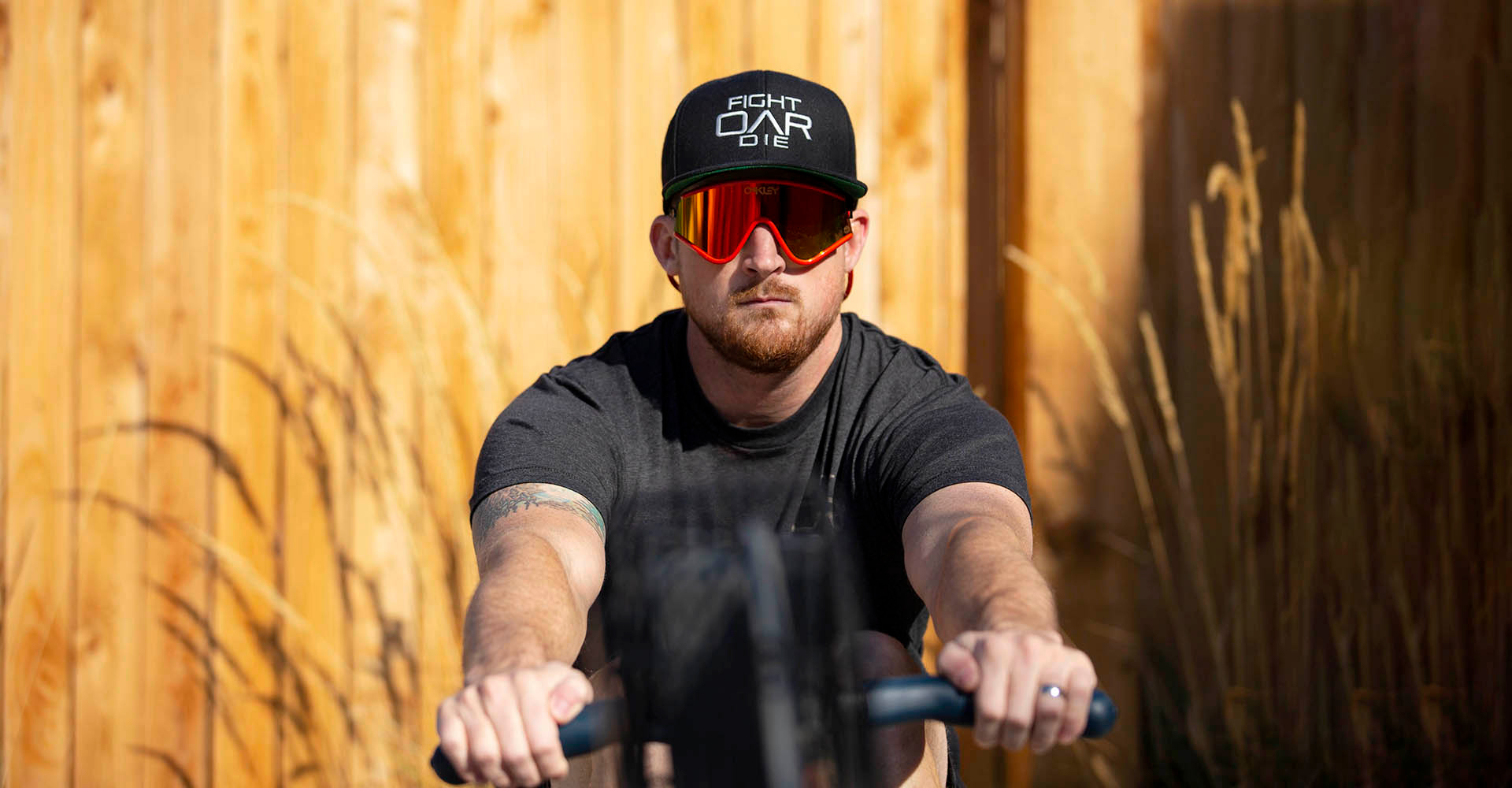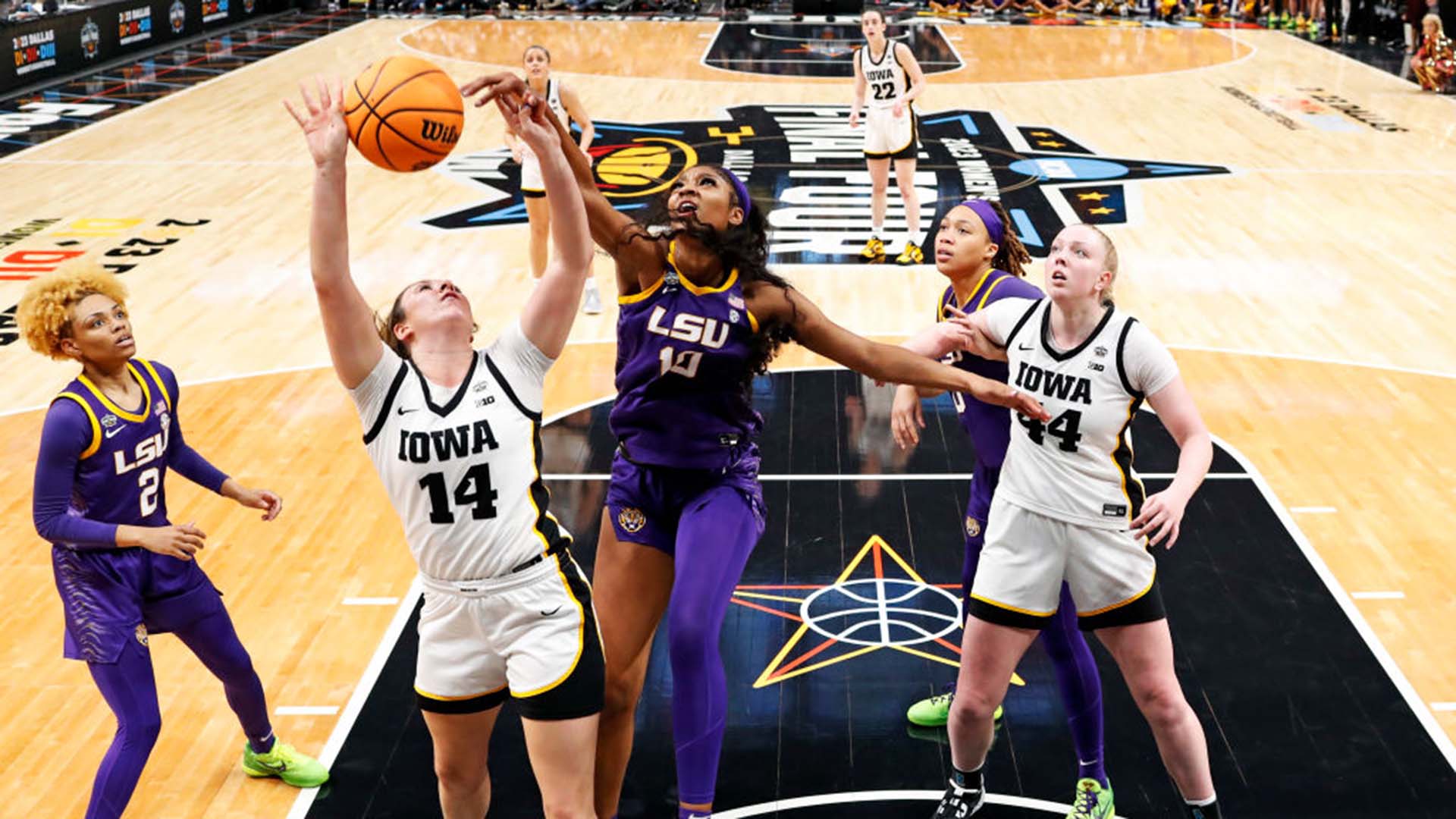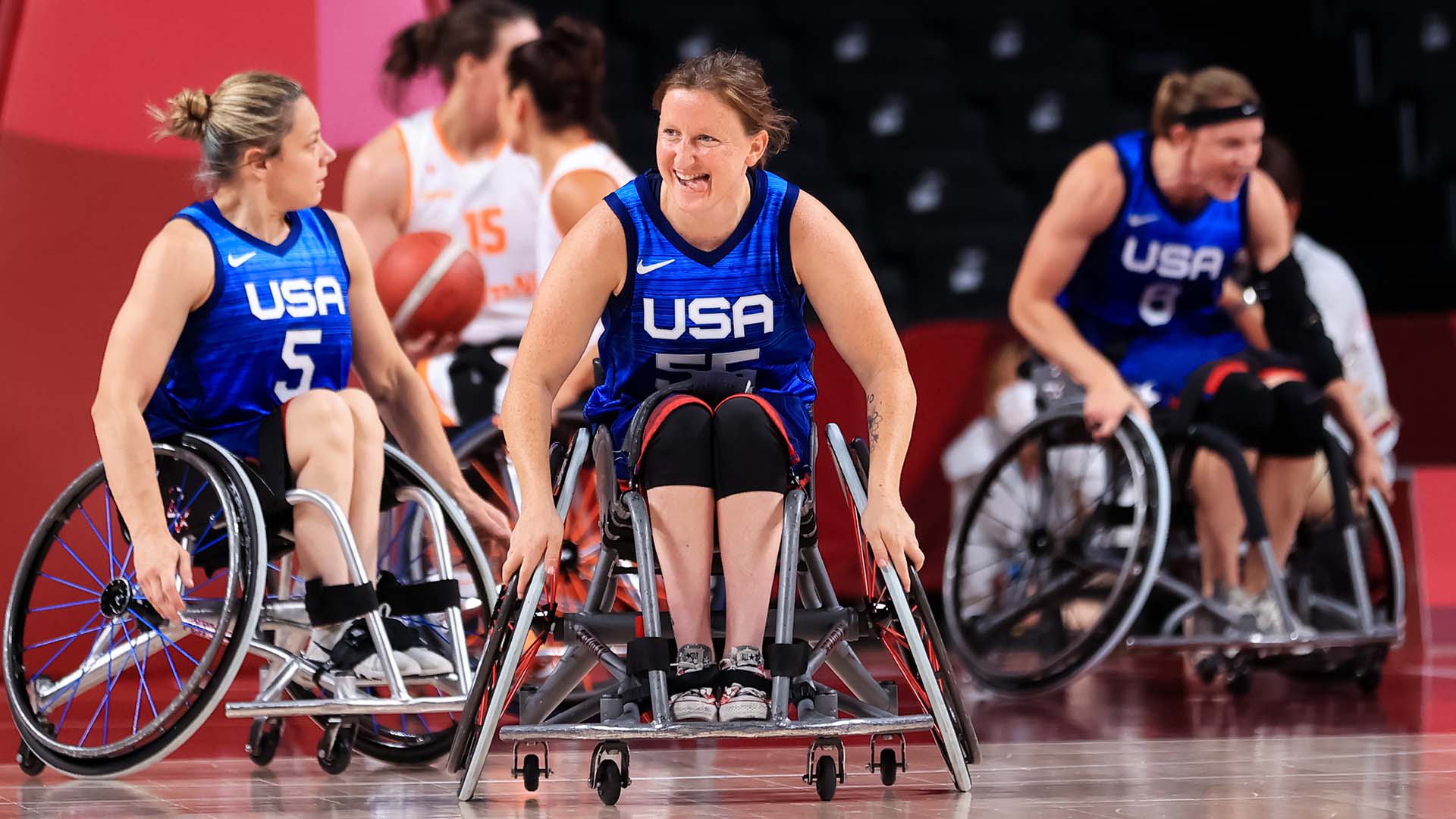Purple Heart, blue ocean
A Marine, new father and college student will attempt to become the first U.S. combat-wounded veteran to row across the Atlantic Ocean.

As if navigating a return to civilian life after nearly being killed in combat in Iraq weren’t difficult enough, Evan Stratton is navigating a return to college as a new father while also working full time in a downtown Denver high-rise. His next feat of navigation, however, may be even more impressive: crossing the Atlantic Ocean in a rowboat.
Stratton and a team of three other military veterans will row 3,000 nautical miles across the ocean in the Talisker Whisky Atlantic Challenge, which begins Dec. 12 in the Canary Islands off the coast of Africa. The journey ends whenever the contestants arrive on the Caribbean island of Antigua – somewhere between 30 and 60 days later.
[Editor’s note: Follow Stratton’s team, Fight Oar Die, on the Atlantic Challenge race tracker.]
Billed as “the world’s toughest row,” the Atlantic Challenge is a daunting physical test for anyone. More people have summited Mount Everest (5,000) or gone to space (560) than have rowed across an ocean (499). A decade ago, it would’ve been impossible for Stratton. He was partially paralyzed.

The ambush
The anti-tank grenade that landed on the hood of the vehicle Stratton was driving through Al-Qa’im, Iraq, sent molten metal flying through his windshield and across his face and left side. A second grenade exploded through the roof, further spraying him with shrapnel and critically injuring his best friend and gunner, Lance Cpl. Brandon Lara.
Stratton was knocked out by the trauma, and he regained consciousness to the sound of machine-gun fire. After he and his fellow Marines repelled the ambush, Stratton and Lara were ground evacuated to their outpost. Lara died next to Stratton before the latter could be taken to Al Asad Air Base, where he underwent lifesaving surgery.
Stratton’s spinal accessory nerve was severed, so his left trapezius muscle, triceps and shoulder were paralyzed. It took more than 50 stitches to repair his cheek and mouth. He suffered a traumatic brain injury, but it could’ve been worse.
“I had shrapnel the size of a rifle bullet enter my neck and push into my carotid artery. It literally pushed into it and stopped without puncturing it. People’s beliefs vary, but someone was looking out for me that day,” he said. “My Oakley sunglasses actually saved my eyesight. I still have the Oakleys, and there are pieces of shrapnel in the lens that stopped that from going into my eye.”
Despite the physical injuries, the hardest part was coming out of anesthesia and realizing he’d lost his friend.
“When I woke up, I had to come to grips with everything,” he said.
The recovery
Stratton was still a teenager when he was awarded a Purple Heart. He joined the military at 17 – his parents had to sign his enlistment papers – after quitting high school and obtaining his GED because he felt “lost.”
In the Marines, he found purpose. He thrived in the structure of the military and volunteered for a deployment in Iraq not long after he completed boot camp.
The ambush in Al-Qa’im took it all away in an instant. He talked his way into staying in an Iraqi hospital for the final month of his unit’s deployment instead of flying to Europe and back home because he couldn’t leave his fellow Marines behind.
Once he returned stateside, his daily military missions were replaced by daily doctor’s appointments. He spent a year on limited duty and was ticketed for medical retirement before he talked his way into another deployment, this time to South America.
Despite lingering injuries that still affect him today, Stratton always pushed himself physically when it mattered most. He guesses that he’s worked his way up to about 85% function in his left side. But he figured out too late that his worst ailments were beyond his body.
“During the time I was in the Marines, going through recovery while on active duty, I was so focused on my physical recovery that my brain injury and my issues with PTSD were completely ignored,” he said. “At 19 years old, I watched my best friend die. At 19, you don’t have the mental or emotional capacity to process that. As I got older, it started to impact me more and more.”
The struggle
The U.S. Department of Veterans Affairs published a report in 2012 estimating that the number of veterans, active military members, National Guardsmen and reserves who die by suicide annually was 8,030 – 22 per day.
Stratton is paying his own way to compete in the Atlantic Challenge, and costs include personal gear, insurance and providing for his family while he takes a leave of absence from work. He set up a GoFundMe with a fundraising goal of $8,030 in honor of those in the military community who take their lives each year.
The cause is personal, as on his darkest day, Stratton attempted to take his own life.
Once he left active duty in 2011, he had tried to live like any other 20-something, going to college full time in Utah while working to pay for school. While he had technically dropped out of high school, academic rigor hadn’t ever been an obstacle. Now, however, he found things that used to be easy were major challenges.
“I was just getting by. I needed the GI Bill to give me a housing stipend so I could pay rent, but I was deteriorating at school and at my part-time job. My personal relationships were going downhill,” he said. “At age 23, I moved back to Colorado into my parents’ basement, after having gone to war. My parents didn’t know I was struggling that bad.
“Nobody in my support system knew, and I didn’t know how to tell them.”
Stratton found himself once again lying in a hospital bed, fortunate to be alive. It took a while to find the fortune, but the next year changed his life. He saw a psychiatrist weekly, then biweekly, for six months. He was on medication for a year.
By then, everything was clicking. He was getting promoted at work. He was back in school at a community college. He moved out of his parents’ house. He had found military camaraderie again in the form of the Warrior Games, where he won five gold and two silver medals competing in track and swimming, and in 2016 he was selected to compete in the international counterpart, the Invictus Games.
“One of the hardest things for mental-health challenges faced by anyone, veteran or not, is that there is no one solution. It’s not one size fits all. You liken it to cancer treatment. There is no one way to treat cancer. It’s an accumulation of things, and there’s a lot of try and fail, then try and fail, then try and succeed,” he said. “Crossing an ocean isn’t done in one fell swoop. It’s done by the accumulation of a lot of small rows.”

The challenge
It will take approximately 1.5 million oar strokes for Stratton, Carl Christensen, John Fannin and Luke Holton to cross the Atlantic Ocean. The veterans of the Army, Navy and Marines will race for the nonprofit Fight Oar Die, founded to increase awareness and support for the cognitive, behavioral and physical health of U.S. veterans and military members.
Last year’s Fight Oar Die foursome became the first group of U.S. veterans to complete the Atlantic Challenge, rowing across the ocean in 54 days. Stratton is aiming to be the first combat-wounded U.S. veteran to traverse the Atlantic, which this year’s crew hopes to do in 40-45 days.
Their vessel is a 28-foot rowboat with three rowing stations and two small cabins for sleeping. Teams usually rotate two rowers on, two rowers off in 2- to 3-hour shifts, all day and night until they’ve traveled 3,000 miles.
Stratton’s most recent hospital trip was for the birth of his son in January, so he jokes that he’s gotten used to sleeping in shifts.
The team will take 700 pounds of freeze-dried food from Backpacker’s Pantry in Boulder, which may seem like a lot, but the average Atlantic Challenge rower loses 25 pounds during the trip.
Stratton is making many sacrifices to take on this challenge. He should be back to Colorado in time to celebrate his second wedding anniversary with his wife, Casi.
He’s taking leave from a job he loves doing health and benefits consulting at Mercer. He restarted his academic career last summer at Metropolitan State University of Denver, where he’s studying finance. He says transferring to MSU Denver was “like a concierge process” because of all the support for veterans. His advisor in the College of Business, also a veteran, helped him plan his classes around his training and travel schedules.
Most important, Stratton will miss his son Beckham’s first Christmas and first birthday. He’ll call home from the middle of the Atlantic on a satellite phone, which runs about $10 per minute, and tell Beckham why he’s five time zones away.
“I want him to know that anything in this world is possible, even rowing an ocean. I hope I’m a great dad, and I hope I’m there for him in the ways that he needs me, but I really want to be my son’s hero. I want to come back home and say, ‘You can do whatever you want,’” he said.
He’s also rowing to carry on the legacy of Lance Cpl. Lara, who sacrificed his life in Iraq 10 years ago. And he’s rowing for all the military veterans who return home facing all kinds of oceans.
“Mentally, we’ll get worn down. It’s monotonous. We’re going to get beat down by storms. We’re going to run into trouble and make errors,” Stratton said. “But that’s what veterans are facing every day, and many of them don’t have the support to do anything about it. That’s what we’re trying to show everyone: If you just row one stroke at a time, you can get through anything.
“If you’re not rowing, you’re not going.”
Follow the Fight Oar Die team online, on Facebook or on Instagram for periodic updates and track their race progress, updated every 4 hours via GPS, on the Atlantic Challenge website.







